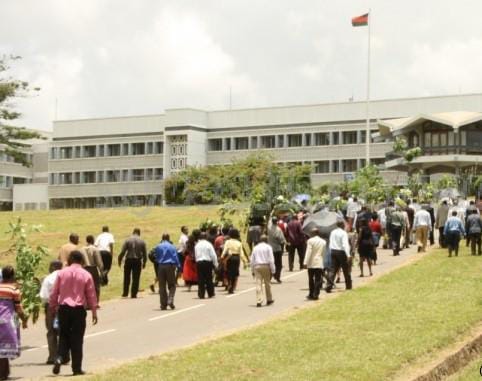By Burnett Munthali
In a bold move aimed at addressing unemployment and ensuring fair opportunities for Malawians, Minister of Labour Vitumbiko Mumba has announced a decisive directive requiring all companies employing expatriates to submit comprehensive documentation to the Ministry of Labour. This includes their qualifications, job descriptions, visas, and curriculum vitae (CVs). The initiative, according to the minister, seeks to determine whether the roles occupied by expatriates can instead be performed by skilled Malawians.
Speaking at a press briefing in Lilongwe, Mumba emphasized that this directive is not intended to alienate expatriates but to promote transparency and prioritize the utilization of local talent. “Malawi has a growing pool of qualified professionals, many of whom remain unemployed or underemployed. We need to ensure that jobs requiring skills and expertise are not unfairly reserved for expatriates at the expense of our own people,” Mumba stated.
The minister’s announcement comes amidst increasing public concern over the high unemployment rate among Malawians, particularly young graduates. Many argue that local talent is often overlooked for roles filled by expatriates, some of whom allegedly lack the qualifications or expertise to justify their employment. This situation has raised questions about whether companies are abiding by the country’s labor laws, which prioritize Malawians for employment unless specialized skills unavailable locally are required.
The directive instructs all companies employing expatriates to provide the ministry with the requisite information within a specified timeframe. The ministry will conduct thorough assessments to determine the necessity of retaining expatriates in those roles. Mumba explained that if the findings reveal that Malawians possess the required skills, companies may be required to replace expatriates with local workers. However, he reassured employers that the ministry will handle the process fairly and in accordance with the law.
To ensure compliance, the ministry plans to collaborate with immigration authorities to verify the validity of visas and work permits issued to expatriates. Additionally, it will engage professional bodies and educational institutions to assess the qualifications submitted. Mumba expressed confidence that this initiative would enhance the labor market’s transparency and contribute to reducing unemployment.
While the announcement has been welcomed by many Malawians, it has also sparked debate. Supporters argue that the move is long overdue, considering the significant number of unemployed skilled professionals in the country. They view it as a step towards empowering Malawians and ensuring that the country’s labor policies are not exploited.
On the other hand, some critics have expressed concerns that the directive could discourage foreign investment if perceived as overly stringent. They argue that expatriates often bring international expertise and networks that can benefit the country’s economy. In response, Mumba assured investors that the government remains committed to creating an enabling environment for business while safeguarding the interests of its citizens.
The minister further emphasized that the directive aligns with the government’s broader agenda of promoting job creation and economic empowerment for Malawians. “This is about striking a balance between welcoming expatriates with specialized skills and ensuring that Malawians are given a fair chance to contribute to the country’s development,” he said.
As the deadline for submission approaches, all eyes will be on the Ministry of Labour to see how it implements this initiative and handles any disputes that may arise. The outcome of this exercise could mark a turning point in Malawi’s labor market, setting a precedent for how the country balances foreign expertise with local talent.
Ultimately, Minister Vitumbiko Mumba’s directive underscores the government’s resolve to address unemployment and foster a labor market that prioritizes Malawians while maintaining its openness to valuable international contributions. It is a delicate balancing act, but one that the ministry appears determined to achieve in the interest of the nation’s socio-economic progress.



